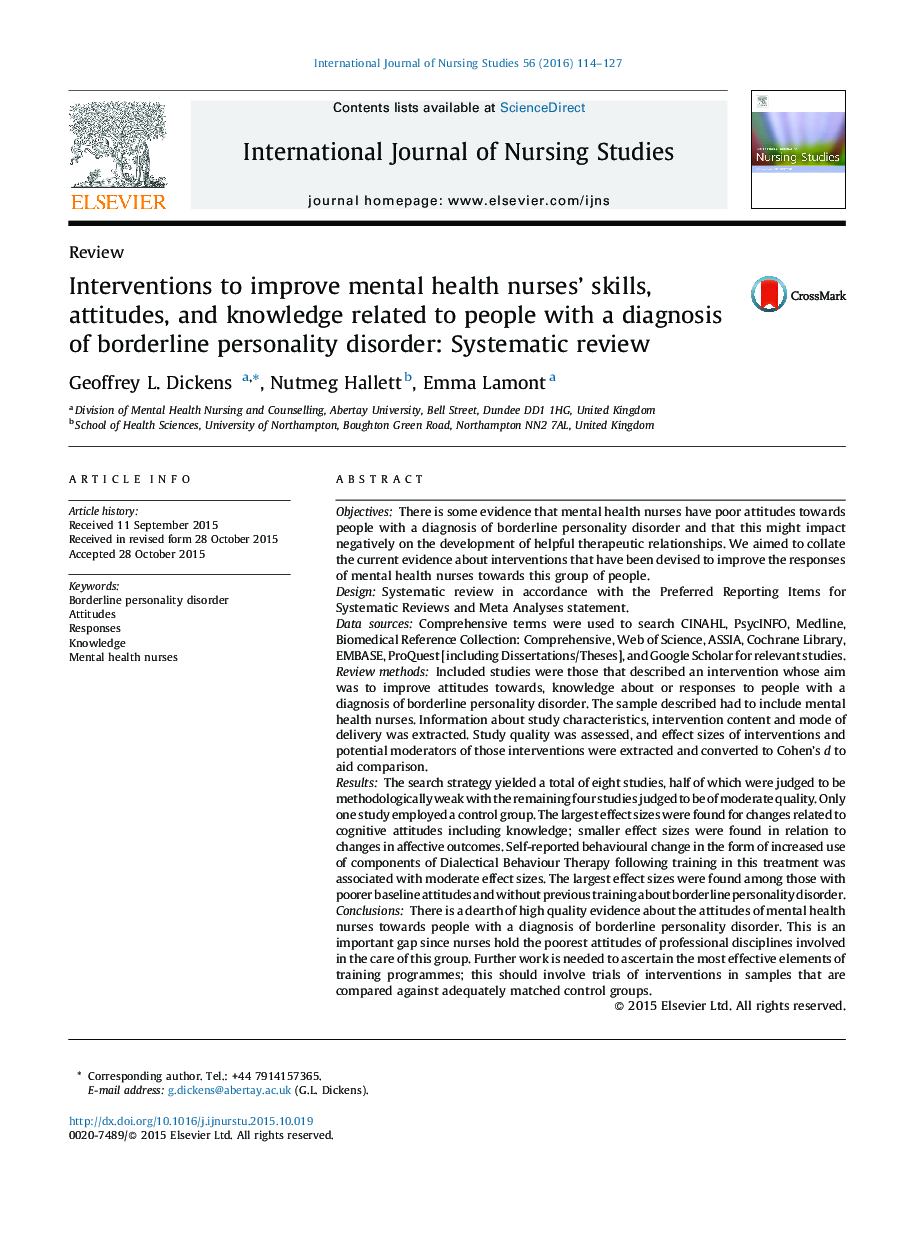| Article ID | Journal | Published Year | Pages | File Type |
|---|---|---|---|---|
| 1076007 | International Journal of Nursing Studies | 2016 | 14 Pages |
ObjectivesThere is some evidence that mental health nurses have poor attitudes towards people with a diagnosis of borderline personality disorder and that this might impact negatively on the development of helpful therapeutic relationships. We aimed to collate the current evidence about interventions that have been devised to improve the responses of mental health nurses towards this group of people.DesignSystematic review in accordance with the Preferred Reporting Items for Systematic Reviews and Meta Analyses statement.Data sourcesComprehensive terms were used to search CINAHL, PsycINFO, Medline, Biomedical Reference Collection: Comprehensive, Web of Science, ASSIA, Cochrane Library, EMBASE, ProQuest [including Dissertations/Theses], and Google Scholar for relevant studies.Review methodsIncluded studies were those that described an intervention whose aim was to improve attitudes towards, knowledge about or responses to people with a diagnosis of borderline personality disorder. The sample described had to include mental health nurses. Information about study characteristics, intervention content and mode of delivery was extracted. Study quality was assessed, and effect sizes of interventions and potential moderators of those interventions were extracted and converted to Cohen's d to aid comparison.ResultsThe search strategy yielded a total of eight studies, half of which were judged to be methodologically weak with the remaining four studies judged to be of moderate quality. Only one study employed a control group. The largest effect sizes were found for changes related to cognitive attitudes including knowledge; smaller effect sizes were found in relation to changes in affective outcomes. Self-reported behavioural change in the form of increased use of components of Dialectical Behaviour Therapy following training in this treatment was associated with moderate effect sizes. The largest effect sizes were found among those with poorer baseline attitudes and without previous training about borderline personality disorder.ConclusionsThere is a dearth of high quality evidence about the attitudes of mental health nurses towards people with a diagnosis of borderline personality disorder. This is an important gap since nurses hold the poorest attitudes of professional disciplines involved in the care of this group. Further work is needed to ascertain the most effective elements of training programmes; this should involve trials of interventions in samples that are compared against adequately matched control groups.
